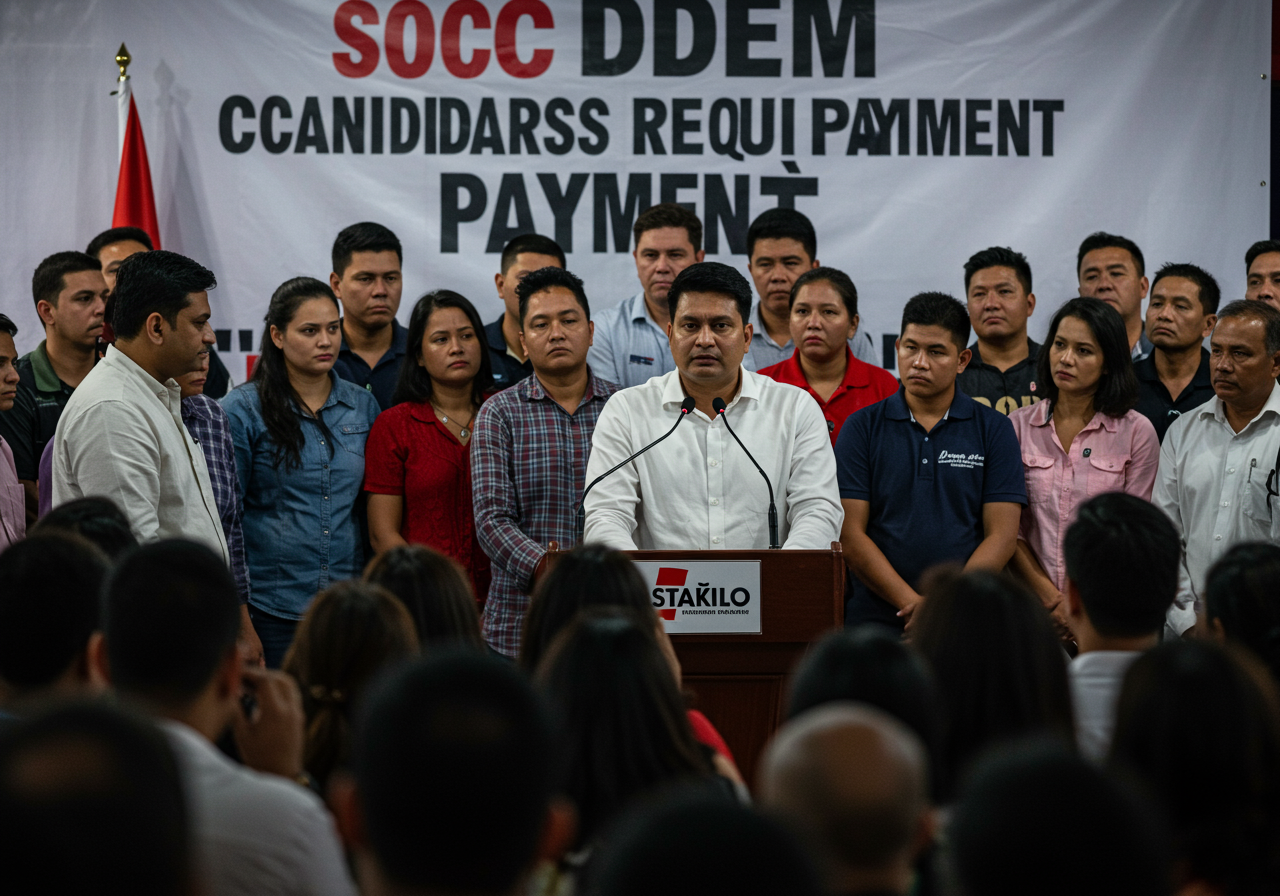By Kristina Vankova
In a startling revelation, the leader of the Sta膷ilo movement has disclosed that candidates within the 膶SSD (Czech Social Democratic Party) are required to pay for positions on electoral lists. This disclosure brings to light a controversial practice that highlights ongoing issues of transparency and ethics within the party structure.
The conversation about political transparency has gained renewed attention following this admission by Sta膷ilo鈥檚 leader, with implications for both the internal dynamics of the 膶SSD and the party鈥檚 public image. With this news, questions arise about the processes that determine who gets to represent the party during elections and the potential impact on democratic processes.
The Payment Requirement
According to the Sta膷ilo official, aspiring candidates must contribute financial payments to secure their spots on the party鈥檚 election lists. This practice has stirred significant debate, as it challenges the democratic principles of merit and accessibility in political representation. Details of how this payment system operates remain partly obscured, as these discussions are often held behind closed doors within party ranks.
Such payments are purportedly used to help finance the party鈥檚 campaign activities, yet critics argue that this system can limit political participation to only those who have the financial means. This has led to concerns about the equitable selection of candidates and the possibility that financial contributions could take precedence over the skills, experience, and ethical grounding of potential candidates.
Reactions and Implications
The revelation of paid ballot placements has sparked reactions across the Czech political landscape. Observers and political analysts point out the potential negative consequences for the 膶SSD, as such practices could be perceived as undermining the party鈥檚 integrity. This might result in erosion of voter trust and the alienation of supporters who expect transparent and fair selection processes.
Critics argue that when financial contributions are intertwined with the selection of political representatives, the resulting governance could disproportionately favor the interests of affluent individuals, shelving broader, inclusive policy considerations. This forms a critical point of concern not only for the 膶SSD but also for the broader electoral integrity within the nation鈥檚 political fabric.
Moreover, this disclosure may lead to increased scrutiny from electoral oversight bodies and civil society organizations advocating for political transparency and reform. Pressure to abandon such practices could rise, as stakeholders demand more stringent regulatory frameworks to ensure all qualified individuals can vie for political office regardless of their economic status.
Contextualizing the Situation
The 膶SSD has been facing declining popularity in recent years, which some attribute to leadership struggles and inconsistent policy stances. As a veteran member of the Czech political sphere, the party鈥檚 struggles to adapt to contemporary political challenges and voter expectations have been noted by analysts.
This new controversy adds to the narrative of a party grappling with internal inconsistencies. The expectation that candidates pay for ballot positions could exacerbate tensions within the 膶SSD, possibly prompting debates on party financing and the mechanisms governing electoral candidacy.
The 膶SSD, like many traditional political parties worldwide, is navigating a rapidly changing political environment where voter engagement, transparency, and accountability are increasingly pivotal. This backdrop makes the revelation particularly significant, potentially prompting other parties to re-evaluate their own internal processes to prevent similar controversies.
Exploring Solutions and Reforms
In the wake of these revelations, thought leaders and political reformists are likely to advocate for systemic change both within the 膶SSD and beyond. Possible solutions could include implementing more transparent procedures for candidate selection, along with clear guidelines and limitations on financial contributions related to ballot positions.
Furthermore, increasing public awareness and education about electoral processes and candidate selections can empower voters to hold political parties accountable. Emphasizing merit, community contributions, and public service records over financial capabilities in candidate evaluations could pave the way for healthier democratic practices.
The conversation around payment for ballot positions also opens the door for dialogue on broader electoral reforms, which can enhance democratic resilience. This might involve strengthening the role of independent regulatory bodies tasked with monitoring party finances and candidate selections, thereby ensuring fair play and equal opportunity for all contenders.
As this situation continues to unfold, the 膶SSD faces the challenge of addressing the ramifications of this disclosure to retain credibility among its voter base. The need for comprehensive reforms resonates across the political landscape as parties strive to align themselves more closely with foundational democratic ideals, moving towards more equitable and accountable governance structures.
Ensuring that all voices are equally represented within political structures is crucial for sustaining democracy. As nations globally contend with similar challenges within political party systems, the lessons learned from this scenario could provide a blueprint for reform that champions transparency, inclusiveness, and integrity.
